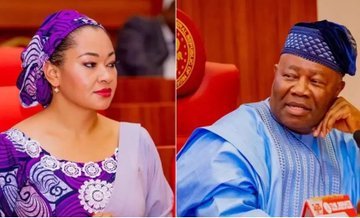Social Economic Rights and Accountability Project (SERAP) has taken legal action against the Nigerian National Petroleum Company Limited (NNPCL), demanding answers over the alleged disappearance of ₦500 billion in oil revenues. According to SERAP, the NNPCL failed to remit this substantial sum to the Federation Account between October and December 2024.
In a suit filed at the Federal High Court in Lagos, SERAP is pushing for a court order to compel NNPCL to fully account for the missing funds and to involve anti-corruption agencies in recovering the unremitted money. The case follows a bombshell revelation by the World Bank, which claimed that while NNPCL generated ₦1.1 trillion from crude oil sales and other sources in 2024, only ₦600 billion was remitted—leaving a ₦500 billion gap.
Responding to SERAP’s Freedom of Information (FoI) request, NNPCL, via its legal representatives Afe Babalola & Co, controversially argued that the FoI Act does not apply to it—an assertion SERAP is now challenging in court.
The legal action—filed as suit number FHC/L/MSC/553/2025—seeks a mandamus order directing NNPCL to explain the whereabouts of the missing ₦500 billion and ensure its prompt recovery. SERAP is also demanding that individuals responsible be identified, surcharged, and handed over to anti-corruption agencies for prosecution.
SERAP argues that the missing oil revenue is a serious breach of public trust, particularly as it affects critical national funding and widens Nigeria’s fiscal deficit. “This shortfall has deepened the country’s economic woes and fuelled the current debt crisis,” SERAP said.
The organisation further highlights that the NNPCL, as a public institution, is subject to the Nigerian Constitution, the Freedom of Information Act, and international anti-corruption conventions. It also references a recent Supreme Court decision affirming that the FoI Act applies across all public records in Nigeria—including those held by the NNPCL.
According to SERAP, the failure to remit these funds has denied states and local governments their fair share, exacerbating hardship for ordinary Nigerians. The group insists that recovering the lost revenue could significantly improve access to essential services such as healthcare, education, and infrastructure.
SERAP pointed out long-standing concerns from the Auditor-General of the Federation and the Nigeria Extractive Industries Transparency Initiative (NEITI), both of which have repeatedly documented unaccounted oil revenues from the NNPCL.

The group underlined that the Nigerian Constitution mandates all public institutions to fight corruption and uphold transparency. Additionally, Nigeria’s commitments under the UN Convention against Corruption obligate public agencies like NNPCL to ensure responsible management of national resources.
The organisation warned that without accountability and full recovery of the ₦500 billion, Nigeria’s economic situation could deteriorate further. “Despite being oil-rich, widespread corruption and impunity have robbed the Nigerian people of the benefits they should enjoy,” SERAP said.
No date has been scheduled for the hearing of the case.











